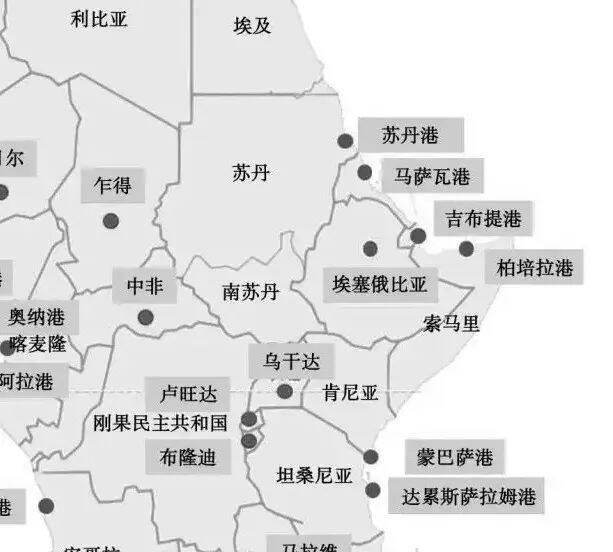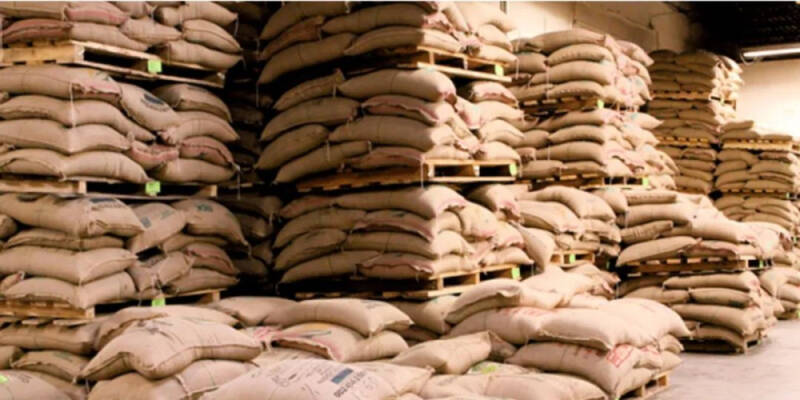The supply chain and export of Ethiopian coffee beans are serious due to market problems such as the Red Sea crisis.
Recently, Ethiopian journalists reported that Ethiopian coffee exporters were forced to endure months of waiting to ship their products abroad due to the Red Sea crisis caused by Houthi attacks. At present, coffee exporters are considering turning to the Kenyan port of Mombasa for export, but there are more logistics problems.
Ethiopian coffee exports now rely mainly on the port of Djibouti in neighboring Djibouti, which lies between the Red Sea and the Gulf of Aden. In the past, at least one ship arrived at the port of Djibouti every day, but since the Red Sea crisis, global shipping giants have decided to make a detour to the Cape of good Hope, resulting in only one ship a month in the port of Djibouti. So at present, a lot of coffee beans are stranded in the port of Djibouti.

And exporters are trying the rest of the solution. Consider exporting through the port of Mombasa in Kenya, but the port is located at the southern tip of Kenya, which used to be a long way across Kenya from Ethiopia, and there are also many problems with logistics to the port.
In addition, as a result of the earlier signing of a memorandum of understanding between Ethiopia and local government leaders of Somaliland to recognize Somaliland as an independent State in exchange for the port of Berbera, the port is still affected by the Red Sea crisis. it has strained relations between Ethiopia and Somalia and the use of ports such as Mogadishu in Somalia.
In addition, recently, the Ethiopian coffee supply chain has been disrupted by the recently launched "vertical integration" scheme, bank credit growth ceilings and physical transport barriers. The President of the Ethiopian Coffee Association stated that exporters and suppliers bought coffee beans on credit from growers, but did not receive payment after the growers delivered the beans, so many growers encountered difficulties and had no money or coffee on hand.
Coffee growers and suppliers in the Illubabor region of western Oromia are waiting for 1 billion bill receivables, a problem stemming from an earlier "vertical integration" scheme introduced by the coffee trade, whereby exporters could purchase coffee directly from suppliers, bypassing the mandatory Ethiopian Mercantile Exchange ECX, which required payment immediately upon delivery, unlike the vertical system. The situation was badly affected by gatherings of farmers and community members in an attempt to rob the property of exporters with unpaid receivables and suicides among suppliers.

In addition, exporters need a lot of money to buy coffee beans, but Ethiopia's national bank, NBE, has set a 14% growth limit on loan spending, which is far from enough to buy coffee beans. It can be said that the coffee supply chain in Ethiopia is beset with difficulties, and some exporters expressed the hope that the government will face up to the problem and believe that the coffee industry needs a lasting solution rather than a quick solution.
Important Notice :
前街咖啡 FrontStreet Coffee has moved to new addredd:
FrontStreet Coffee Address: 315,Donghua East Road,GuangZhou
Tel:020 38364473
- Prev

Brazilian Coffee beans | introduction of Yellow Bourbon Coffee beans in Queen's Manor, Mogiana, Sao Paulo State
Brazilian coffee plays an important role in the global coffee market, all because Brazil says that the world's largest coffee producer and exporter accounts for 1/3 of the world's coffee exports. But many people will think that the coffee produced in Brazil is mainly in quantity and of average quality, but Brazil also has many high-quality boutique coffees.
- Next

Use the knife staff to drink! Lucky to reduce the cost of the new rules caused controversy
▲ Click to follow | Daily boutique Coffee Culture Magazine Coffee Workshop some partners choose to become baristas in order to experience the work of coffee shops, while others like to drink enough coffee in coffee shops and enter the coffee industry. Many coffee beaters confess that they like to drink coffee and work in coffee shops.
Related
- What grade does Jamaica Blue Mountain No. 1 coffee belong to and how to drink it better? What is the highest grade of Blue Mountain coffee for coffee aristocrats?
- What are the flavor characteristics of the world-famous coffee Blue Mountain No. 1 Golden Mantelin? What are the characteristics of deep-roasted bitter coffee?
- Can I make coffee a second time in an Italian hand-brewed mocha pot? Why can't coffee be brewed several times like tea leaves?
- Hand-brewed coffee flows with a knife and a tornado. How to brew it? What is the proportion of grinding water and water temperature divided into?
- What is the difference between Indonesian Sumatra Mantinin coffee and gold Mantinin? How to distinguish between real and fake golden Mantelin coffee?
- What does bypass mean in coffee? Why can hand-brewed coffee and water make it better?
- Unexpected! Ruixing Telunsu lattes use a smoothie machine to foam milk?!
- % Arabia's first store in Henan opens into the village?! Netizen: Thought it was P's
- Does an authentic standard mocha coffee recipe use chocolate sauce or powder? Mocha Latte/Dirty Coffee/Salty Mocha Coffee Recipe Share!
- What is the difference between Vietnam egg coffee and Norway egg coffee? Hand-brewed single product coffee filter paper filter cloth filter flat solution!

